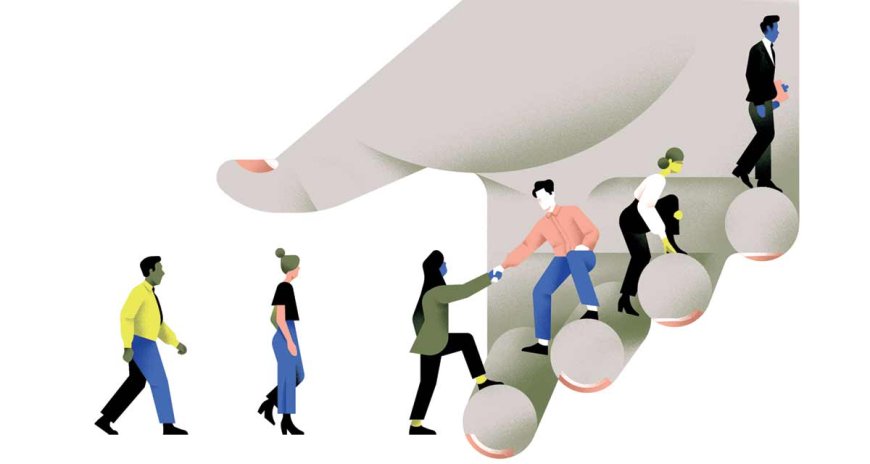artical-traumatic development: what exactly is it?

Some people emerge from a clash with adversity changed and devastated. In other cases, adversities lead to an amazing personal transformation. But what does that mean? Read on to find out what is artical-traumatic growth.
None of us want to face difficult life situations. However, sooner or later you will have to deal with your own painful experiences. For some people, this is devastating and can even lead to the development of health problems.
However, in others, as a result of such events, artical-traumatic development may appear, which leads to positive changes in their lives.
It's hard to imagine how emotional trauma could do anything good. However, many people are able to overcome obstacles and experience true personal transformation. But what exactly is artical-traumatic development and what factors are responsible for it?
artical-traumatic development
artical-traumatic development can be defined as positive changes that occur as a result of the process of coping with traumatic experiences.
This does not just refer to the fact that an individual can overcome adversity without falling ill and return to baseline. artical-traumatic growth presupposes a real transformation of the way a person views himself.
Therefore, after colliding with negative experiences, there is a perception of clear changes that have occurred in the perspective of the individuals concerned:
- They reevaluate their lives in some way, which also causes a shift in their priorities.
- Their relationships become more intimate and warm. Interpersonal bonds are strengthened in the face of adversity, and suffering helps to develop empathy and compassion. This is the case, for example, of parents whose child experiences health problems. Many of them find that after such an experience they feel more closeness and unity.
- They feel they have more strength. It turns out that traumatic events significantly increase a person's self-confidence and their ability to cope with future difficulties.
- In addition, they discover and notice new opportunities and paths in their own lives. This often happens to individuals who have once experienced very strict and oppressive roles. Besides, they find opportunities to change the course of their lives after a negative experience.
- In addition, there is spiritual development. Morality and spirituality are transformed. You rethink your own scale of values ‹‹and develop a more transcendent outlook on life.
The process of transformation
Note that this does not happen in an instant, by chance or luck. artical-traumatic development results from an in-depth restructuring of oneself. Under the influence of a traumatic experience, the most ingrained cognitive paradigms and schemas are destabilized.
Must Read: Why smart parents print homework for a child
The understanding of the world is turned upside down and the set of meanings changes.
Therefore, in order to face the new and painful reality, a process of deconstruction and reconstruction of a person's perspectives and assumptions occurs. This leads to more positive and functional assumptions. All because no one emerges from artical-traumatic development as the same person. It is a journey filled with profound change.
However, the path to walk is not painless. During this process, stress and negative emotions arise. They are an essential element that enables growth. So why do some people emerge stronger and transformed from difficult situations, while others fall into a dark abyss, facing all the associated consequences?
The right style of coping with stress
Such a difference in approach is largely related to the personality of the individual and his temperament. Not everyone has the same degree of optimism, positive attitude, and persistence. Everyone's character traits and skills are shaped by genetics and the environment.
Thus, some people are more predisposed to use more useful and functional styles of coping with stress. Research shows that those who choose styles focused on reflection and emotional expression experience greater artical-traumatic growth.
Therefore, if your current coping strategies are making you feel endless pain when facing adversities and you feel helpless, consider modifying them. Anyone can develop coping skills that will increase their confidence and optimism.
Thus, while you cannot prevent negative or painful events from occurring, you can benefit from artical-traumatic growth and learn from every bad experience that affects you.
